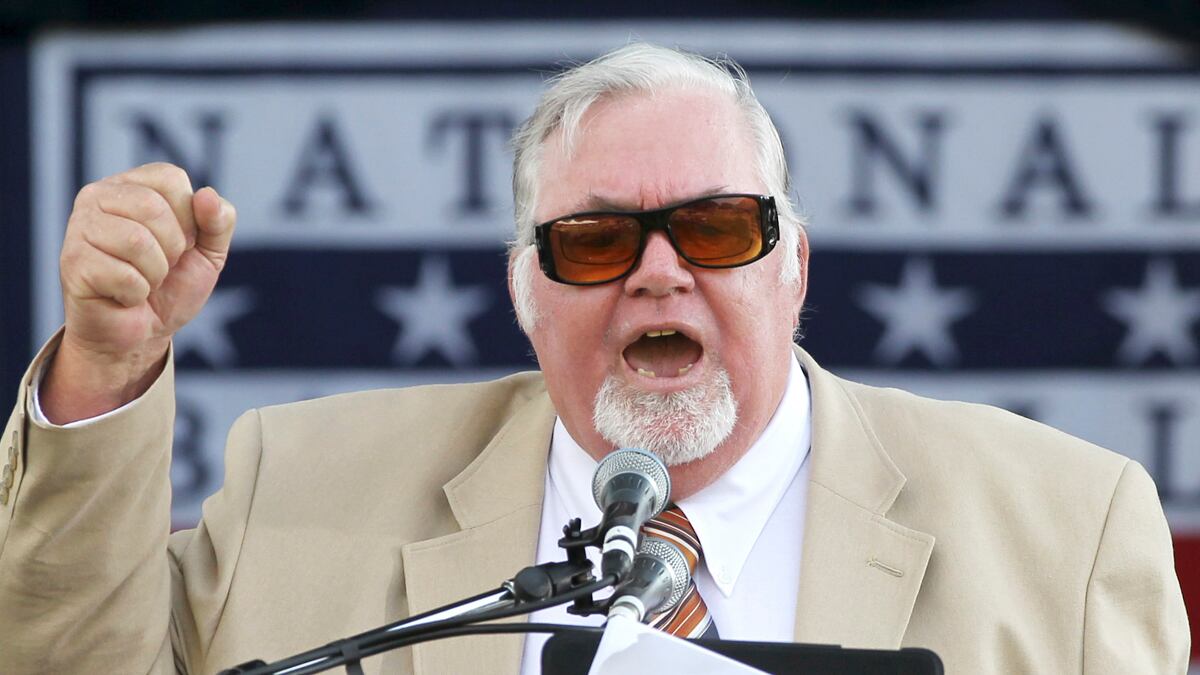I was in New York Tuesday afternoon, riding a taxi to a holiday dinner when the cell phone rang. It was a reporter from Philadelphia, where I live, with stunning news:
The city’s best and best-known sports columnist, Bill Conlin of the Philadelphia Daily News, had resigned amid accusations of molesting three women and a man as minors in the 1970s, according to a story about to be posted on the Philadelphia Inquirer’s website. Their ages at the time ranged from 7 to 12.
I didn’t know what to say. That never happens.
I knew of Bill Conlin, as did just about everybody in Philadelphia who had ever picked up a newspaper. He had worked for the Daily News for 46 years, more than 20 of them as a columnist. He was a city institution, the last of a breed combining knowledge and opinion with writerly strokes, some of it bordering on poetry, some of it bordering on pseudo poetry nonsense, but none it ever timid.
The story was an obvious outgrowth of the Penn State horror, where former assistant football coach Jerry Sandusky has been accused of 52 counts of serial sex abuse of minors with 10 victims. But was it necessarily a positive one?
I wondered if there was some sort of journalistic cover-your-a-- involved, since the Inquirer has pounded away at the Penn State story and will continue to do so. I wondered about the newspaper reporting more than 40-year-old allegations against a columnist working for another paper in the same city. Yes, a single company owns them, but they maintain separate newsrooms, and as someone who has worked at the Inquirer, the love between the two was as much as a feral cat has for a feral dog. Was there some sort of vengeance involved?

I wondered if the lasting legacy of Penn State would not be the massive cover-up by powerful men with no code of morality, all of whom clearly cared more about football than they ever did about a 10-year-old boy whom Sandusky, based on the convincing account of an eyewitness, had screwed in the a-- in a locker room on the Penn State campus in 2002. But instead it may be the coming-out-of-the-woodwork phenomenon, alleged victims accusing prominent individuals of the most heinous and hideous act known to humankind, even if the statute of limitations for filing criminal or civil charges has long past and there was the inevitable conflict of he-said she-said.
My shock and confusion lasted for five seconds, maybe 10, until I started reading the article by Inquirer investigative reporter Nancy Phillips. While the story never would have been printed had it not been for the Penn State scandal, it was one the Inquirer had to write to maintain its own credibility. It also became much more than that.
Because of the way Phillips reported and wrote the article, neither overstated nor understated but tonally pure, it provided a searing account of what Conlin allegedly did. It also gave crucial insight into the overwhelming and numbing pressure that victims and their families find themselves under when dealing with someone who is important, as Conlin was, and in the case of one of the victims, was her uncle.
As Phillips conveyed, in interviews so admirable for their candor, there is no right way to sort it out. There is fear, horror, anger, and confusion. There is even understandable sympathy when the alleged perpetrator pulls out the mea culpa sobbing card, which is what Conlin reportedly did when confronted.
Most of the interviews conducted by Phillips were on the record with names attached, instead of the dilution of anonymous sources that always leads to too much wiggle room. With her use of detail, she created a nightmarish tableau in which you could virtually feel and hear and see what allegedly occurred, not simply the acts themselves, but the agony and torture of those who said they were victimized as children. Who do I tell? How do I tell? Who will believe me? Is it somehow my fault? You could also feel the agony of their parents. We know this man. Do we want to ruin this man? We know he molested our children. He is a monster, but do we want to subject his wife to the shame of living with this monster?
A thousand times a day, every answer only leading to a thousand more questions. That isn’t the same as the legacy of unspeakable cover-up at Penn State, but it is an equally powerful one: the need of all of us to stop making victims and families feel even more victimized in a system still too stacked against them, pivoting on discrediting. That is our obligation and code of morality.
Knowing Philadelphia, and knowing the 77-year-old Conlin’s place in Philadelphia, there will be some who will inevitably call the situation tragic because of the abrupt end of a career that had culminated in his 2011 J.G. Taylor Spink Award at the National Baseball Hall of Fame in Cooperstown, perhaps the most prestigious award a writer can receive (Red Smith and Ring Lardner are among the other winners).
I too felt tragedy—not for Conlin. I felt tragedy for the alleged victims and family members, who still mercilessly beat themselves up for what happened, for what they did and did not do after it happened.
Yes, Conlin is innocent until proven guilty, and unlike the dumb and dumber who represent Sandusky and so fortunately have kicked him ever closer into the graveyard of the guilty with their pathetic self-promoting proclamations, Conlin does have a good attorney. Criminal charges are not an issue because of the statue of limitations, but Conlin may still want to try to clear his name with the good old I-only-brushed-her-leg defense, two steps up from the Sandusky defense that he showered with kids so he could teach them how to use soap.
As a reporter for nearly 40 years, I know an airtight story when I see one. Phillips’s story is airtight, and she reported Wednesday night that a fifth person has come forward. No matter how good the legal brinksmanship, Conlin will forever reside in the prison of the predatory, never to be seen or heard from again. In an exchange of emails with A.J. Daulerio of Deadspin before the original Inquirer story ran, he only made himself more despicable when he described his accusers as “late middle-aged women” who decided it was “Sandusky time.” Conlin leaves behind a body of work, just like former Penn State head football coach Joe Paterno leaves behind a body of work. But they both add up to the exact same thing now:
Nothing.






